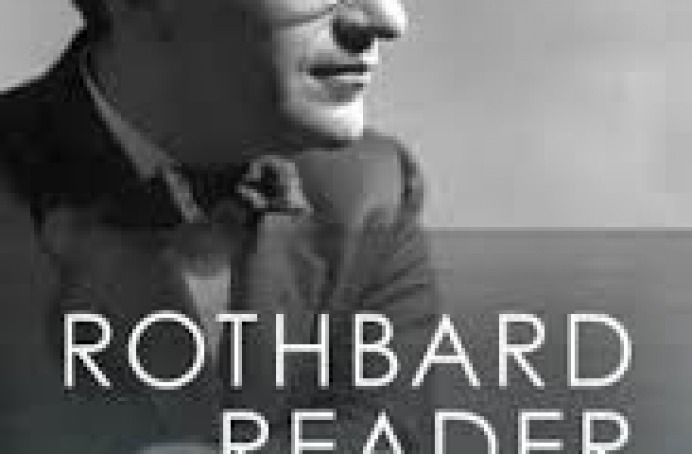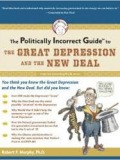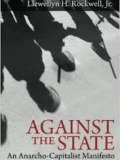
The Rothbard Reader
One reason for Rothbard’s continuing popularity is his ability to reach across disciplines, and to connect them: unlike many contemporary economists, who specialize in increasingly narrow fields within the science, Rothbard’s research agenda was expansive and interdisciplinary, covering most of the social sciences and humanities.
Some readers of this book will already be familiar with Rothbard’s major works, such as his path-breaking treatise on economics, Man, Economy, and State. Yet Rothbard also produced hundreds of shorter works for both academic and popular audiences. Unfortunately, many lack the time to explore his writings; what’s more, his oeuvre is so enormous it is often difficult to know where to begin.
This book aims to solve these problems by providing a window into Rothbard’s achievements in the social sciences, humanities, and beyond. It includes introductory, intermediate, and advanced material, to ensure the book can be enjoyed by readers of all levels of understanding and familiarity with Rothbard’s work. Therefore although it is intended primarily for newcomers, veteran readers will also find much to discover or re-discover in these pages.
The individual articles in this collection can be read in any order; with that in mind, we propose two ways to explore them. Those new to Rothbard’s writing may want to begin with the shorter, more accessible chapters that interest them most, before continuing on to more difficult topics. However, we have intentionally arranged the articles and sections so that readers who prefer a systematic discussion, or who are already acquainted with Rothbard’s ideas, can read the book cover to cover.
The volume begins with a personal look at Rothbard’s life and work, as told in his own words. The opening section, “Rothbard: Man, Economist, and Anti-Statist,” brings together three rare interviews, each highlighting different aspects of his unique personality and worldview. Readers will soon recognize an overarching theme running through Rothbard’s life and work: a passion for liberty, a unifying principle in his thought, no matter the discipline.
This commitment can be seen further in the next section, “Foundations of Social Science and the Free Society.” In the first essay, Rothbard stresses “The Discipline of Liberty” as the foundation for the study of humanity. This central interest serves as inspiration and foundation for the project that follows, namely, an outline of the human sciences and their primary method of investigation: praxeology.
Although Rothbard wrote on many subjects, his training—and heart—were in economics, and so too are the majority of the writings in this collection. The next two sections provide a concise exposition of economic theory, beginning with individual value and choice. They explore in turn Rothbard’s insights into the “Principles of Economics and Government Intervention” and “Money, Banking, and the Business Cycle.” Together, these chapters provide a brief overview of Rothbard’s more comprehensive account of economic theory in Man, Economy, and State.
Austrian economists have always been fascinated by the history of their science, and Rothbard was no exception. In fact, his writings on the subject are among his most original and controversial. The section devoted to the “History of Economic Thought” surveys the contributions of many influential economists, outlining the development of economics from mercantilism to the modern Austrian school.
However, Rothbard’s historical interests extended far beyond the history of economic doctrines. The section on “Economic History” illustrates how he consistently a
aboutLiberty Portal


Against the State: An Anarcho-Capitalist Manifesto diagnoses what is wrong with the American political system and tells us what we need to fix things. The cure is a radical one because, as the book incontrovertibly shows, the many problems that confront us today are no accident. They stem from the nature of government itself. Only peaceful cooperation based on the free market can rescue us from our present plight.
Against the State is written by Lew Rockwell, the founder of the Mises Institute and LewRockwell.com, and the closest friend and associate of Murray Rothbard, the leading theorist of anarcho-capitalism. Rockwell applies Rothbard’s combination of individualist anarchism and Austrian economics to contemporary America. The book shows how the government is based on war, both against foreign nations and against the American people themselves, through massive invasions of our liberties. Fueled by an out-of-control banking system, the American State has become in essence fascist. We cannot escape our predicament through limited government: the government is incapable of controlling itself. Only a purely private social order can save us, and Rockwell succinctly sets out how an anarcho-capitalist order would work.



